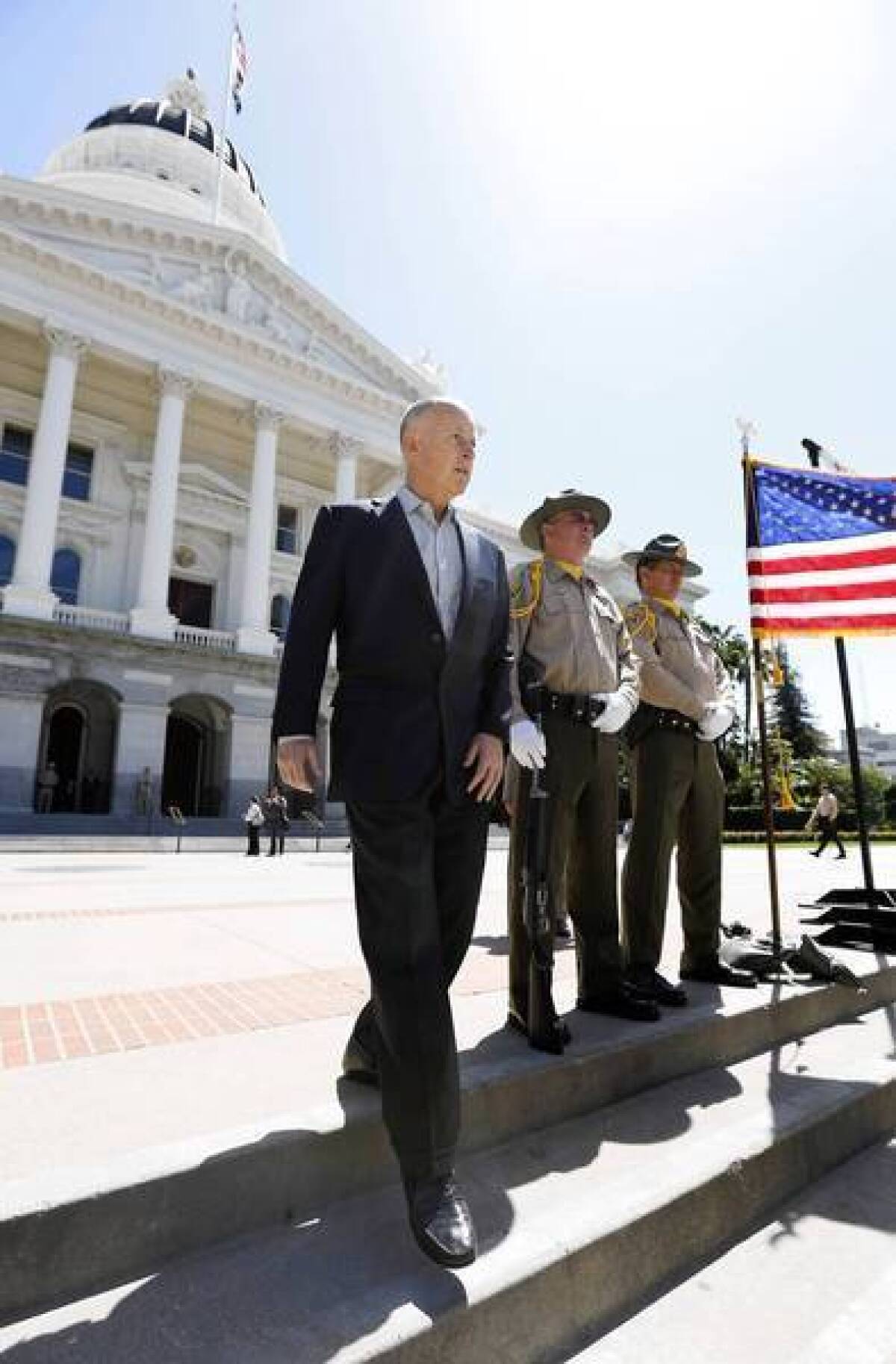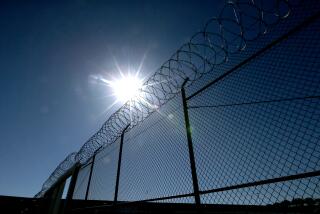Jerry Brown files notice to appeal prison ruling to Supreme Court

- Share via
Gov. Jerry Brown has, as promised, filed legal papers to appeal federal court orders to reduce the state’s prison population with the U.S. Supreme Court.
[Updated 4:40 p.m. May 13: The brief notice of appeal, filed Monday afternoon, simply states that a panel of three federal judges “did not fully or fairly consider the evidence showing that the state’s prison healthcare now exceeds constitutional standards.” It is to be followed by the full appeal itself within 60 days.]
Brown’s lawyers argue that the California-based judges erred in denying the state’s motion to vacate or modify population caps, and in threatening Brown with contempt of court if he did not produce a plan to meet those caps.
The governor’s prison crowding plan, submitted “under protest” last week, outlined steps the state could take to come closer to the court’s target of 137.5% of prison design capacity.
Those steps include moving more inmates into low security fire camps, continuing to contract for prison beds in private facilities out of state, and leasing jail space from Los Angeles and Alameda counties.
However, Brown told the federal judges he did not support most of those measures. State legislative leaders as well said they opposed increasing state spending on prisons.
[Updated 5 p.m. May 13: Monday’s appeal notice was filed with the three U.S. District Court judges who set, and have attempted to enforce, California’s prison population caps. No document has yet been filed with the U.S. Supreme Court.
It signals the beginning of the state’s appeal process, just two years after the Supreme Court rejected the state’s last appeal and upheld findings that state prison conditions amounted to cruel and unusual punishment.
Corrections officials contend that the district judges who recently renewed orders to reduce crowding “did not give proper weight” to reductions made over the last six years or to California’s spending on prison improvement and construction projects.
Despite those gains, lawyers for prisoners most recently convinced a federal judge that mental health care for inmates remains unconstitutionally poor. Prisoners’ lawyers are now pressing the court to order further changes, including a halt to the practice of housing mentally ill inmates in isolation cells normally used for punishment.]
More to Read
Get the L.A. Times Politics newsletter
Deeply reported insights into legislation, politics and policy from Sacramento, Washington and beyond. In your inbox three times per week.
You may occasionally receive promotional content from the Los Angeles Times.











